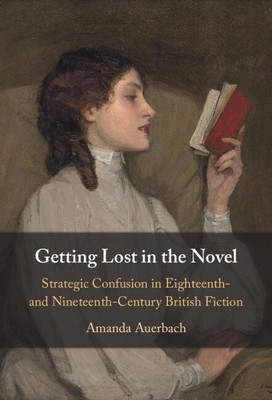
- We will send in 10–14 business days.
- Author: Amanda Auerbach
- Publisher: Cambridge University Press
- ISBN-10: 1009585517
- ISBN-13: 9781009585514
- Format: 15.2 x 22.9 x 1.1 cm, kieti viršeliai
- Language: English
- SAVE -10% with code: EXTRA
Reviews
Description
Instances abound in eighteenth- and nineteenth-century novels where characters, particularly female characters, become lost, often moved by overwhelming emotion. Amanda Auerbach delves into the impact of these scenes on the character and the reader. On one level, 'getting lost' can realign a character's and our own sense of self and of social situation, while more broadly these instances reflect arcs within the overall narrative, highlighting easily-missed elements, sometimes even reflecting on our own experiences while reading. The emotions that move characters most powerfully often relate to their psychological needs, which the social conditions of their lives prevent them from meeting or fully acknowledging. These episodes appear across multiple novels in multiple subgenres, including the marriage plot, the gothic novel, the Victorian bildungsroman, and the sensation novel. These episodes collectively reveal how eighteenth- and nineteenth-century British novelistic subgenres developed to help women and working-class readers covertly satisfy their psychological needs.
EXTRA 10 % discount with code: EXTRA
The promotion ends in 22d.08:20:30
The discount code is valid when purchasing from 10 €. Discounts do not stack.
- Author: Amanda Auerbach
- Publisher: Cambridge University Press
- ISBN-10: 1009585517
- ISBN-13: 9781009585514
- Format: 15.2 x 22.9 x 1.1 cm, kieti viršeliai
- Language: English English
Instances abound in eighteenth- and nineteenth-century novels where characters, particularly female characters, become lost, often moved by overwhelming emotion. Amanda Auerbach delves into the impact of these scenes on the character and the reader. On one level, 'getting lost' can realign a character's and our own sense of self and of social situation, while more broadly these instances reflect arcs within the overall narrative, highlighting easily-missed elements, sometimes even reflecting on our own experiences while reading. The emotions that move characters most powerfully often relate to their psychological needs, which the social conditions of their lives prevent them from meeting or fully acknowledging. These episodes appear across multiple novels in multiple subgenres, including the marriage plot, the gothic novel, the Victorian bildungsroman, and the sensation novel. These episodes collectively reveal how eighteenth- and nineteenth-century British novelistic subgenres developed to help women and working-class readers covertly satisfy their psychological needs.


Reviews